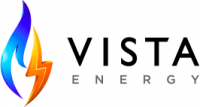What’s the Difference Between Energy Efficiency and Energy Conservation?
Learn How Both Concepts Can Lower Your Energy Bill
Words have meaning. Definitions are important. Just because two words are used interchangeably doesn’t mean they’re actually synonyms. And if there are any two terms that have been overused, abused, and confused by energy industry blogs like this one, it’s definitely “energy efficiency” and “energy conservation.”
In short, they are quite different concepts in terms of theory and practice. But once you understand the true differences between them, you can implement both of them into your life and lower your energy bills.
What is Energy Efficiency?
As we discussed in a recent blog post, energy efficiency can be better understood as technology that uses less energy to create the same amount of energy. We used the example of a new LED light bulb compared to a traditional incandescent bulb – to create the same amount of lamination, the former might need only 6 Watts of energy, while the latter needs 100 Watts. Hence, when you flip on a light switch, using a new-school light bulb will mean you’re using less energy to light your room the same as you did with that old-school bulb.
But that energy-efficient technology doesn’t necessarily mean you’ll have a smaller energy bill. You could use just as much energy because you keep it running longer and more often than ever before. Energy efficiency doesn’t mean you’ll use less energy – it only sets the stage for you to do so.
What is Energy Conservation?
When we talk about actively using less energy, we’re talking about energy conservation. Your energy-efficient light bulb might employ less energy to create the illumination you need for your room, but if you really want to reduce how much energy you use, you need to turn that bulb off completely.
Energy conservation in a nutshell is simply finding every possible way to NOT use energy.
What is the REAL Difference between Energy Efficiency and Energy Conservation?
Let’s use the example of the thermostat in your home to explain this in a tangible fashion. Despite its presence on many “How to Be Energy Efficient” lists, installing a programmable thermostat will not save you energy or money. That thermostat will still use whatever settings you program, so if you’re blasting 70 degree F (21.1 degrees C) in the summer and 72 degrees F (22.2 degrees C) in the winter through a fancy, app-controlled device, you’re still using lots of energy.
- If you program your thermostat to be slightly higher (or lower, depending upon the season) when you’re away from home, this is energy efficiency in action. As you aren’t running your entire HVAC system hard all the time, you’re becoming more strategic with how you use energy which can lower how much you use.
- If you set your thermostat to 75-78 degrees F (23.9-25.6 degrees C) in the summer (and higher when you’re not at home) and 68-65 degrees F (20-18.3 degrees C) in the winter (and lower when you’re not at home), this is energy conservation in action. You’re making the conscious decision to use less energy.
In other words, energy efficiency is about convenience, while energy conservation is about habits. Energy efficiency can make the idea of saving energy more convenient in your everyday life, but energy conservation is about you make the active choice to use less energy in every way possible.
Energy Efficiency and Conservation Impact Your Energy Bills
As we said earlier, both of these concepts are great, but you can only truly lower your monthly energy bills by taking both of them into account. As in, you could raise your thermostat in the summer and lower it in the winter, but it will be easier to maintain those temperatures with an energy-efficient thermostat. And yes, installing an energy-efficient range will use less energy to cook your food, but you will start really saving money when you use that appliance less often and at cooler times of the day.
Do you really want smaller energy bills? Start using less energy around the home, and when you do need some energy, use technology that generates that energy more efficiently.
Have Questions? Call Us!
Our representatives are waiting to help you Mon - Fri 7:00 am to 6:00 pm CST
Sat 10:00 am to 3:00 pm CST
